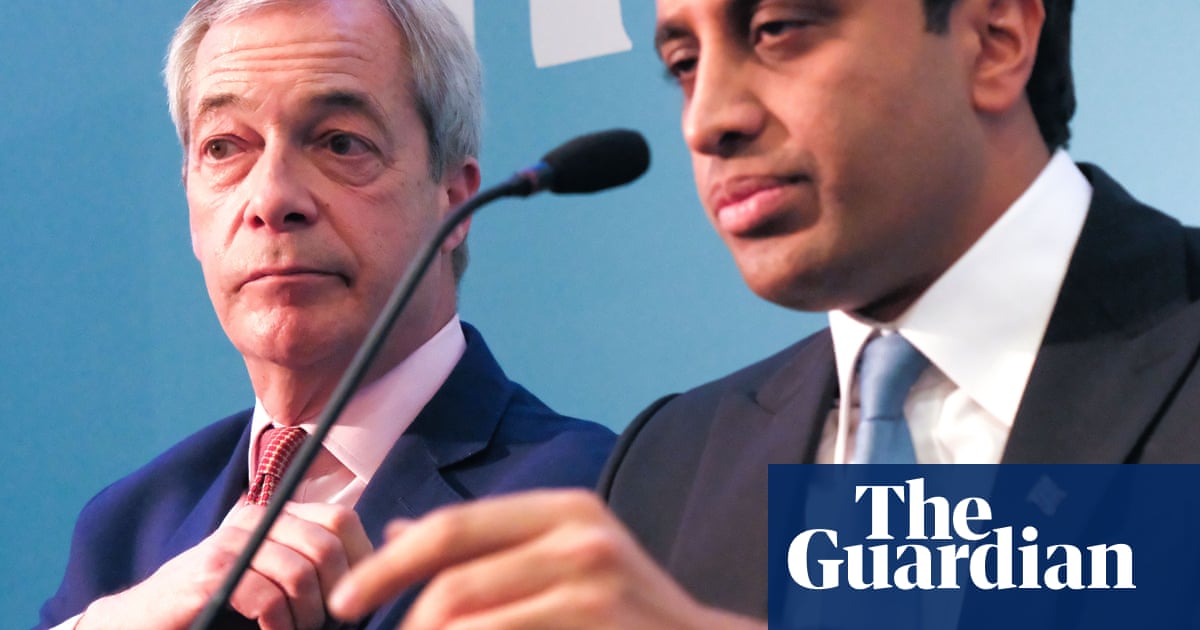Delivered without warning in a 54-word tweet, Zia Yusuf’sannouncement that he was standing downas Reform UK’s chair has seemingly come out of the blue.
For close watchers of Nigel Farage’s party in recent times however, the departure of the man largely credited with “professionalising” its operation ahead of last year’s general election performance andlast month’s local electionbreakthrough is less of a shock.
A self-described “British Muslim patriot”, it had not been hard to find Islamophobic commentary about Yusuf among users ofReform UKFacebook groups. Others who left the party – or who have been ejected from it – were angered by his corporate approach, which they blamed for making it a cold house for grassroots veterans and mavericks.
In the 11 months in which he had been Reform’s chair, Yusuf brought with him the ethos and language that might be more associated with a vibrant tech start-up than a hard-right British political party.
A businessman who had made a fortune from selling his luxury concierge service, Velocity Black, in 2023 for a reported $300m, Yusuf exploded on to the political scene last June by donating a six-figure sum to Farage’s party.
The two men had known each other for years, having met at a party hosted by the former Ukip treasurer Stuart Wheeler.
In his new role at Reform, Yusuf oversaw a restructuring of the party from branch level upwards, pledging to introduce bespoke technology and roll-out the tightest vetting of any political party in Britain in a bid to root out cranks and extremists.
At Reform rallies, he was a regular speaker, initially wowing the grassroots and earning the discreet praise even of political rivals. He was often one of the few non-white people in the room and was the living embodiment of Farage’s insistence that Reform was not a racist party.
As recently as Monday, Farage sought to fend off allegations of racism and xenophobia being levelled at Reform, by pointing out at a press conference in Scotland that his party’s chair was Scottish born and had “parents who come from the Indian subcontinent”.
But there had long been rumours that all was not well in Reform, not least after the fall-out which ledto the departure of its Great Yarmouth MP, Rupert Lowe. Aside from the online abuse, Yusuf is said to have been increasingly at odds with other senior figures in the party.
This week’s controversy over comments in parliament by Reform’s newest MP, Sarah Pochin, in whichshe called on the prime minister to ban the burqa, appears to have been the straw which broke the camel’s back. Yusuf took to X to describe it as a “dumb” question, given that was not party policy.
For some time, Farage and Yusuf appeared to be joined almost at the political hip, frequently appearing side by side, but the party leader did not come in behind his young chair on the Pochin issue.
Yusuf’s tweet on X announcing his departure was as blunt as it it gets. Crediting himself with having “quadrupled Reform’s membership and delivered historic electoral results”, he added: “I no longer believe working to get a Reform government elected is a good use of my time.”
The response from Farage – also delivered, as custom now dictates, on X – was, on the surface, laudatory, with the leader describing him as “a huge factor in our success”.
Yet, a paternalistic tone was obvious. “Politics can be a highly pressured and difficult game and Zia has clearly had enough,” Farage said.
Looking back at the longer sweep of the Reform UK leader’s political career, the parting of ways is nothing if not on brand. Farage’s time in charge of various parties – from Ukip to the Brexit party – has been littered with fallings-out. There is, as many of his admirers and critics agree, room for only one trailblazer at the top of any Farage-led party.
However, at a time when Reform is continuing to ride high in the polls, the departure of Yusuf comes with a serious question. Could this be the thread that unravels the seemingly unstoppable Reform juggernaut?
